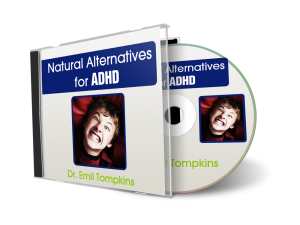ADD: HOW IS IT DIFFERENT FROM ADHD?
Attention Deficit Disorder or ADD is a very complicated, and time and again misinterpreted, disorder. Its beginning is physiological, but it can have a multitude of consequences that come alongside with it. That apart, what is the differentiation between ADHD and ADD? ADHD is the abbreviated form of Attention Deficit Hyperactive Disorder, its major indications being noticeable hyperactivity and impulsivity. These are the indications that are noticeable to the purposeful onlooker. ADD stands for Attention Deficit Disorder with the major indications being lack of concentration. Now a lot of other things can come alongside with both of these subtypes of ADHD, but those are the distinctive characteristics of both.
For several years, the usual picture of Attention Deficit Disorder has been the little boy that is bouncing off the walls and making his teachers and parents go mad. ADHD is beyond a doubt the more identifiable of the two subtypes since it is so much more noticeable than ADD. Since hyperactivity causes a lot more disruption and problems for classrooms, it gets the most notice and will be picked up on a lot quicker. Unluckily, even if ADD is less visible, the consequences of the disorder can just as negative.
With negligent attention deficit disorder, or ADD, the person enduring it will give the impression of being spacey and disordered. More often, victims with this type will be gazing out of the window during classes and will seem as if they are never somewhat there. It is much more tricky to make a diagnosis and a lot of people with this form of ADD go years without even knowing they have it. But the consequences of the drifting mind can be just as disparaging.
For a long time, it was considered that only boys suffered from ADHD. However, this figment has been busted of late. It is now acknowledged that both girls and boys can suffer from attention deficit disorder, and many do not get out of it in middle age. One disparity that has been noticed is that girls are inclined to have the inattentive version of ADD, and many times it is wrongly diagnosed as depression. Since inattentive ADD does not create noticeable troubles and disruptions to the nearby surroundings, a lot of them endure in silence for years before they discover the real reason of their plight.
With both ADHD and ADD, making a diagnosis early on is very essential. Even though troubles with schools are the most apparent indications, some victims do not have major problems with getting school work completed. Keep track of your children, not just academically, but generally and psychologically as well. Do they have problem with other children? Does it appear as if they have difficulty putting in order or are extremely disordered? Do they have difficulty sitting motionless for a period of time? Are they extremely silent or extremely chatty? Now any of these indications do not in particular denote ADD or ADHD, but they do point to asking for outside help from a health care provider or a counselor.
Your child’s psychological well being is just as vital as their physical well being and how they do in school. Confirm it out if you sense like something is off. If left for years not diagnosed, ADD can create a lot of other resulting troubles that can take a long time to get rid off and can be arrested. There are some natural alternatives to help kids with Attention Deficit Disorder. Click Here for more information.


